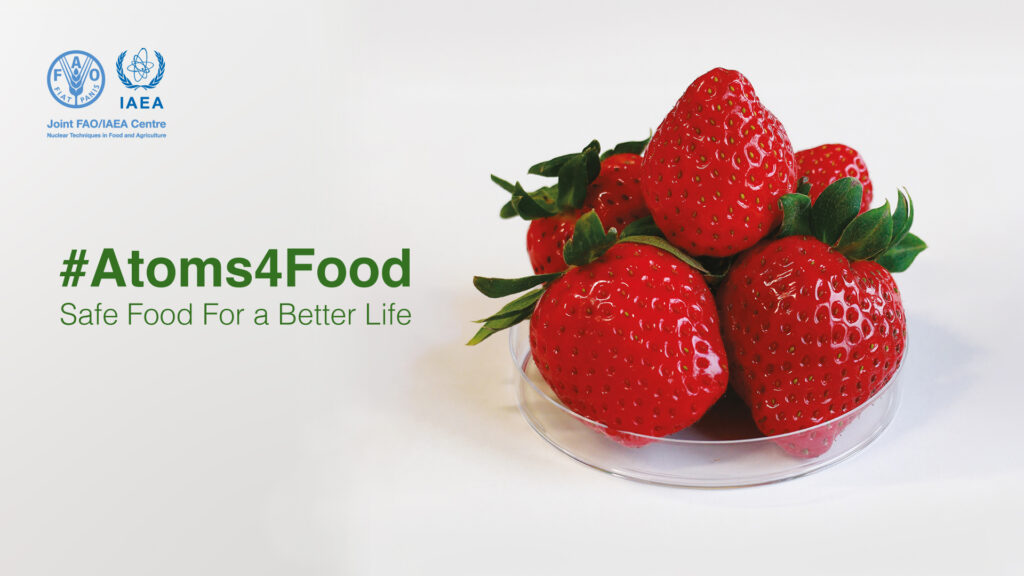“The symposium will serve as a platform to explore mechanisms for enhancing the resilience of food control systems and, in particular, advances in the application of nuclear technologies to strengthen food safety and control,” said James Sasanya, Acting Section Chief of the Food Safety Control Section at the Joint FAO/IAEA Centre for Nuclear Technology for Food and Agriculture. “The event aims to address key issues affecting food safety and quality, and increase the adoption of nuclear and related technologies to contribute to food security and adapt to climate change,” he said.
With an estimated 600 million cases of foodborne illness annually, unsafe or poor quality food poses a threat to human health. The symposium will provide a forum for information sharing on cutting-edge research and developments in the application of nuclear technologies for food safety and control, opportunities for public-private networking, and an opportunity to define future research needs and directions.
Nuclear and isotopic technologies play a key role in analytical and laboratory services to ensure safe and quality food consumption. Nuclear science also contributes to reducing post-harvest losses and controlling pests and diseases that impede exports.
Organized by the Joint FAO/IAEA Centre for Food and Agriculture Nuclear Technology, the symposium will focus on key topics such as food authenticity and combating food fraud, irradiation for food and phytosanitary inspections, chemical residues and contaminants in food and feed, emergency and accident preparedness and response affecting the food supply, detection and characterization of pathogens in food, standard setting and risk assessment, and One Health (an integrated approach to human, animal and environmental health). The symposium will also discuss the Atoms4Food initiative, which focuses on food safety and control. Partnerships will also be discussed.
The Joint FAO/IAEA Centre and its Agricultural and Biotechnology Institute coordinate and support applied research through more than 25 collaborative research projects per year and promote cooperation among 400 international and national research institutes and experiment stations.
Food control systems ensure food safety and quality, which are essential components of food security and necessary to protect international trade in food, combat food fraud and ensure fair practices that promote economic opportunities for all actors in the food supply chain.
Participants will include members of organisations such as representatives of IAEA and FAO Member States, scientists, researchers, laboratory analysts, policy makers, regulators, food producers and other stakeholders involved in food safety and control systems.
Peaceful uses of nuclear technology play a key role in protecting national and international food supply chains and strengthening food security and resilience to climate change related challenges. The Joint FAO/IAEA Centre, in collaboration with the IAEA Technical Cooperation Programme, supports Member States in the development and adoption of nuclear and related technologies, and provides scientific solutions to regulate food safety and quality.


